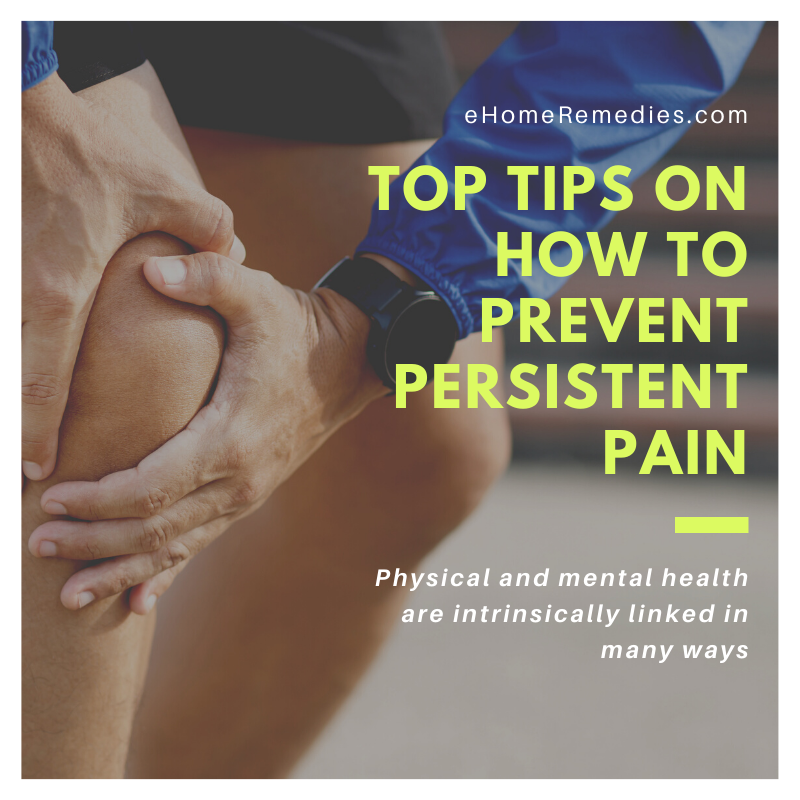Living with persistent pain can make life exceptionally uncomfortable at practically every possible juncture.
It can affect both your physical and mental health and unfortunately, it is often difficult to talk about, even with loved ones and medical professionals.
There is no need to suffer in silence when help is out there in many different forms, so seeking it out is a must for anyone wishing to free themselves from the bonds of turmoil.
If this sounds familiar, and you feel as though a recurring pain is preventing you from enjoying your life properly, here are some top tips to consider.

Acknowledge Your Mental Health
Physical and mental health are intrinsically linked in many ways; their unique relationship can both enrich and impoverish one’s life, given the right circumstances.
Acknowledging your mental health and taking steps to look after it is a good first step towards combatting the potential stress caused by persistent pain.
This might mean seeking help from psychology experts, writing down your feelings and coming to terms with your emotions.
Seek the Ideal Treatment
The ideal treatment might in fact be a mix of different inputs. For example, a combination of counseling, physiotherapy and home remedies may be necessary to deliver the optimal results, so it is worth keeping your options open.
It could be worth seeking stem cell treatment from an expert clinic, as this can help you to rejuvenate your body and, in many cases, eliminate the prominence of persistent pain.
If you need some direction in this area, you might want to turn to the fantastic services at bioxcellerator.com for support.
Steer Clear of Harmful Influences
It can be worryingly easy to turn to alcohol and tobacco for hedonistic indulgences at a time of great strife, and while this may be able to temporarily dull your senses, you are ultimately causing yourself more harm in the long run.
Moreover, chemical dependency can cause immense levels of stress, perhaps resulting in a perpetuating cycle. This can make chronic and emotional pain far more prominent in the mind, a factor that needs to be avoided if you aim to prevent persistent pain in general.
Stay Active
Exercise can make you feel better, but it might feel like the last activity you ever want to think about when you’re in pain.
If you can manage just a small amount of exercise, however, you could start to feel positive effects before too long, even in small bursts.
Not knowing where to start, or whether you are capable of starting at all can be an upsetting position to find yourself in, but it is worth noting, there will likely be an activity that suits your needs, both physically and mentally. Here is a list of exercises you may find helpful in getting you on the right path.
Before you go ahead with any exercise, consulting a medical professional with regard to your pain and physical health is a must, as this can help you avoid causing avoidable stress and strain.


